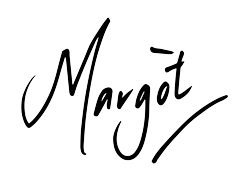“Success today requires the agility and drive to constantly rethink, reinvigorate, react and reinvent”
– Bill Gates
We all know that we are living in rapidly changing times but this was really highlighted to me last week when hearing how knowledge is currently doubling at a rate of every 12 months with this soon to be every 12 hours. Navigating that sheer volume of new information and more importantly letting go of what has become obsolete seems like an almost unfathomable concept.
There is no doubt that planning for future business needs has therefore become more complex. Not only are we navigating unprecedented volumes of new knowledge and levels of change but also the very way in which we work is being reshaped. With new technologies emerging almost daily, how we communicate, collaborate and make decisions is significantly impacted. We have people remaining in the workforce for longer, greater diversity than ever before and now find ourselves operating and responding to a more globalized economy providing unprecedented access to new markets and talent pools.
With many roles and job titles today in danger of disappearing altogether and those of tomorrow yet to be defined, there is also a new challenge we all face in how to best manage our own careers. How do you plan out future career paths when the very nature of what we do, how we do it and where we do it is rapidly changing around us? Reid Hoffman & Ben Casnocha, authors of The Start Up Of You note that building long term career success requires individuals to consider themselves as entrepreneurs and their careers as a start up business. In qualifying this they say that ‘ the skills that start-ups require are the very skills that professionals need in order to advance their careers: nimbleness, personal investment, strong networks and intelligent risk taking”.
To do this we need to embrace and develop the skill of agility. Without it we can all too easily become stuck. Stuck in our thinking, ways of working and in roles that fail to see us grow. When we become stuck we can all too easily lose our relevance, impact and confidence.
It is widely recognized that agility enhances performance in activities that require a quick change in direction whilst maintaining the core elements of balance, speed, strength and control. It leads to faster response and can easily provide significant competitor advantage. Often associated with sport, it is considered one of the main components of fitness and consequently forms an integral part of training schedules.
It makes sense then that it should form an integral part of establishing our own career fitness. Not only does it help improve current performance but it also helps ensure that any sudden change in direction – such as redundancy, promotion or career shifts – are navigated with relative ease and strength.
Given that agility is built on strength and co-ordination it is imperative that we gain clarity on what our core strengths are: what knowledge, skills and styles do we have to leverage. We then need to understand where we best fit: where we can co-ordinate our skills and knowledge with those of others. I would also encourage you to consider the following five actions for creating career agility:
‘Think global, act local’: Whilst this saying was originally used to heighten environmental awareness, it is very apt for our careers. We are working in an increasingly globalised world that is responding to change, disruption and connection at a global level. Our role is to be aware of it so we can leverage and apply it with relevance and confidence to our own careers and positions.
Remain informed: Navigating any form of change requires us to be informed of what it is. Too often we look ‘across and down rather than up and out’ and as a result our awareness outside of our immediate world is diminished and therefore limiting. It is important to be informed of relevant industry trends; interesting collaborations and market announcements.
Take considered risks: Low risk is often associated with stability. However it has been suggested that in the long term, continually opting for the low risk options leads to increased vulnerability as it reduces our resilience to deal with sudden and high level change. ‘Playing it safe’ with your career can in fact create higher risk through an inability to cope with the volatility and rate of change which is all to common in the market place today.
Invest in learning: With the constant change happening in our workplaces and industries you can never assume that you know all there is to know about managing your career. Invest time to acquire the right intelligence and know-how that will accelerate your career. Consider what projects, opportunities and courses will build, stretch, leverage and maximise your knowledge, skills and style.
Create diverse networks: Invest in the right relationships and dedicate time and energy to them. Identify your key influencers and thought leaders, and identify a meaningful pathway of how to approach and engage with them. Build a networking plan that fosters authentic professional relationships where you can also offer valuable contributions.
As always I would love to hear your thoughts below.
Margot


